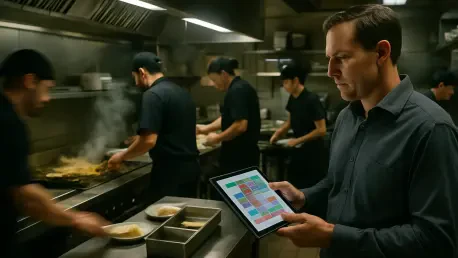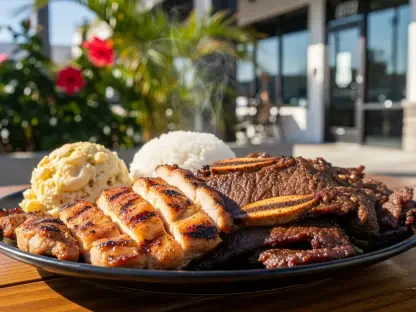In a year when franchise systems have chased growth while rediscovering the basics of cash-on-cash returns, FSC Franchise Co.’s decision to appoint John Massari as chief financial officer framed a timely test of whether disciplined finance can power scale without diluting brand identity or franchisee health. The parent of Beef ‘O’ Brady’s, The Brass Tap, and Newk’s Eatery sits at roughly 250 to 280 units across 27 states, a footprint large enough to expose inefficiencies yet compact enough to benefit from tight execution. Massari’s profile—nearly three decades in restaurant finance with 25 years at Bloomin’ Brands, followed by a private-equity-backed scaling run at Artistry Restaurants—offered an operator-centered playbook rather than a purely financial thesis. The immediate question, then, was not if FSC could expand, but whether it could do so while lifting unit-level economics that compel franchisees to add new doors.
Signals From A Strategic Hire
Massari’s arrival signaled a pivot from opportunistic growth to planned expansion governed by model integrity and measurable returns, an approach increasingly favored across multi-concept platforms. At Bloomin’ Brands, he supported concept evolution across formats and markets, balancing brand refreshes with international entry, a duality that taught the value of guardrails: pace must follow profitability, and refreshes must pay back. His subsequent role at Artistry Restaurants—scaling to roughly six brands and 50 locations through acquisitions—honed the muscle of integrating disparate concepts and systems without eroding performance. That experience appeared suited to FSC’s portfolio, where a sports pub, a craft beer and entertainment bar, and a fast-casual brand require different levers yet a unified financial backbone.
Moreover, the hire clarified FSC’s intent to formalize processes while keeping operators in the room. The company’s language around “100% franchisee success” did more than posture; it tethered financial rigor to the franchise advisory council and committed management to codifying what works at the store level into replicable standards. In practical terms, this meant sharpening the financial model—clean dashboards, consistent P&L taxonomy, and faster insights—so franchisees can act on signal, not noise. It also meant tightening the underwriting for new units: site-selection discipline, realistic ramp assumptions, and labor scheduling modeled to dayparts unique to each brand. The aim was not expansion at any cost but a franchise model that “works and sells itself,” fueled by outcomes that owners can bank on.
Aligning Operators, Systems, And Capital
FSC’s multi-brand structure created a hedge against shifting guest occasions, but it also demanded orchestration. Beef ‘O’ Brady’s leaned into community sports gatherings and family value; The Brass Tap emphasized craft beverage discovery and event-driven traffic; Newk’s Eatery prioritized speed, quality, and convenience. Massari’s near-term mandate centered on systems that reconcile these differences without adding friction: a coherent technology stack for ordering, loyalty, and labor; menu engineering that guides margins by daypart; and a supply chain tuned for both flexibility and resilience. In this framing, the finance function was not a gatekeeper but a design partner, blending capital allocation with operator feedback to remove blockers to throughput and profitability.
That operator-first stance played out in the focus on menu, technology, and supply chain decisions informed by ground truth. Menu refinement would follow contribution margin and prep complexity, stripping items that slow the line or underperform on frequency while protecting signature equity that drives repeat visits. Technology upgrades would target net labor savings and ticket growth, not novelty—think kitchen display systems that reduce errors, loyalty that tightens visit cadence, and scheduling tools that align labor with real demand. Supply chain work would prioritize back-up vendors, commodity visibility, and logistics contingencies to minimize shocks. Each lever mapped to unit economics: higher turns, steadier margins, less volatility. Together, they positioned capital as a catalyst for franchisee confidence.
Roadmap To Scalable Unit Economics
With Massari in place, the playbook advanced from principle to sequencing: fix data fidelity first, codify winning routines next, and then press expansion where returns cleared the hurdle rate. The company leaned into standardized KPIs—weekly prime cost windows, cash conversion cycles, and four-wall cash flows per square foot—so owners and the support center spoke the same language. Pilots preceded rollouts, with franchise advisory input formalizing “go/no-go” gates on tech and menu changes. New unit underwriting adopted tighter scenarios, stress-testing sales variability and wage pressure by market. Financing options were evaluated through the lens of cost-to-build and time-to-breakeven, not just headline interest rates, guiding franchisees toward structures that protected liquidity during ramp.
The next steps favored momentum over splashy promises and, importantly, they were actionable. Expansion would cluster markets to unlock supply efficiencies and shared labor pools, while remodels would be staged where payback windows met targets validated in tests. Brand marketing would shift toward measurable traffic drivers—local sports calendars for Beef ‘O’ Brady’s, programming cadence for The Brass Tap, and digital convenience for Newk’s—each tied to contribution, not impressions. Vendor agreements would be renegotiated with volume tiers that reward sustained growth. By anchoring decisions in operator economics and repeatable systems, the organization moved from aspiration to execution. The strategy had placed franchisees at the center, treated discipline as an enabler, and turned a multi-brand platform into a durable growth engine.









